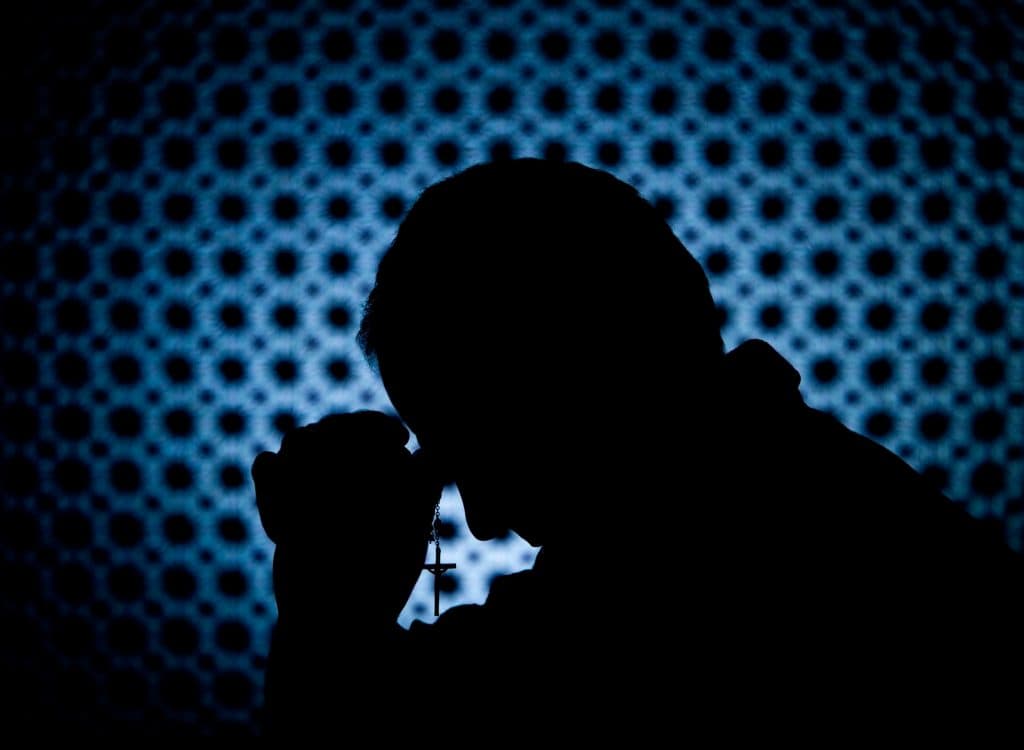Do Christians in the 21st century still need to be holy? If so, what exactly does this mean? Specifically, what does holiness mean in the context of struggles with pornography?
I suspect most people have a vague understanding of holiness—that it has something to do with God, that it probably means there are some things they should or shouldn’t do. Years ago, a secular magazine published an article about Covenant Eyes, suggesting we “block unholy web content.”
Naturally, the author used the word ironically. She meant “Christian prudery.” But holiness is much more than this. Hebrews 12:14 instructs Christians to pursue holiness because, “without it no one will see the Lord.”
So let’s see what this means, and why it’s vital for the Christian struggling with porn.
1. Holiness Means Being Set Apart
In the Old Testament, the Hebrew word for holy is, qadowsh, which means “to be set apart.” God’s chosen people were holy because God had set them apart from the other nations. Among God’s people, the Levites in particular were holy because God set them apart to serve as priests.
In the New Testament, 1 Peter 2:9 applies this idea of “a holy people” to us as believers in Jesus. We’ve been set apart and belong to God in a special way. Furthermore, we were set apart to “proclaim the praises of the one who called you out of darkness into his marvelous light.”
This tells us that watching porn has no part in the Christian’s life. Watching porn is sin, and it’s part of the darkness we’re called away from. Although many Christians struggle with this, it goes against the grain of who they are in Jesus.
2. Holiness Means Receiving God’s Grace
For Christians, overcoming pornography is not primarily about self-discipline or willpower. It’s about God’s grace working in a believer’s life.
Christians should rely on God’s strength through prayer, Scripture, the Holy Spirit, and Christian community, rather than trying to conquer sin by their own efforts (Philippians 2:13).
When a Christian struggles with temptation or even relapses, it doesn’t mean God has abandoned them. Holiness is something God applies to the believer through their relationship with Jesus. But it’s also a process as the Christian learns to rely on God in the midst of their own weakness (2 Corinthians 12:9), and experiencing God’s grace as we confess our sins to one another (James 5:16, Galatians 6:2).
3. Holiness Means Restoring God’s Image
Pornography is unholy because it distorts the image of God in both the viewer and the people being viewed.
How exactly?
Porn strips the relational and communal aspects away from sexuality. It’s no longer about two people knowing each other and being known intimately within the boundaries and protections that God designed.
God made sex as a sacred bond within marriage, but porn turns it into a commodity. God intended sex as two people giving themselves to each other. Porn is just about taking for yourself. So when someone watches pornography, they are consuming a degradation of God’s image and degrading God’s image in themselves.
In contrast, Colossians 3:10 says that Christians “have put on the new self, which is being renewed in knowledge after the image of its creator.” Living in holiness means we look more like God and we think more like God. And this is reflected in our sexuality, and the way we look at and think about other people.
4. Holiness Means Dying to Sin
The Bible uses the metaphor of death to describe a Christian’s relationship with sin. This can be difficult to understand. What does it mean to be dead to sin?
Among other things, “dying to sin” means taking practical steps to remove opportunities for temptation. It means confessing your struggles to another person (Hebrews 3:13, James 5:16). It could include downloading accountability software, or removing your access to forms of media that could be triggering (Matthew 5:29-30).
Holiness requires an active, ongoing battle against sin (Galatians 5:16-17). Christians should not expect instant perfection but rather steady progress. When a believer stumbles, they should confess, receive God’s grace, and continue in the fight rather than fall into despair (1 John 1:9).
5. Holiness Means Living to Righteousness
The Christian life is not just about avoiding sin—the dying part—but also about pursuing righteousness. This means that the fruit of the Spirit, love, joy, peace, patience, kindness, gentleness, goodness, and self-control, (Galatians 5:22-23) should increasingly characterize your life.
On a practical level, it looks like replacing sinful habits (like watching porn) with new things, like learning more about God, investing time with people, showing kindness, and using your resources to help and encourage others. However, since this is produced by the Spirit, it’s not just a matter of forcing yourself to “be more spiritual.” God is actually the one working in the background of your life, slowly and gradually bringing about a change to make you more like Him.
6. Holiness Means Living in Two Worlds
You may have noticed a tension in what I’ve been saying so far. On one hand, holiness is something that God does for a Christian. It’s an objective reality because of Jesus’s work on the cross, and it doesn’t depend on how we feel or what we do.
That’s incredible.
On the other hand, holiness does involve the things we do. It’s hard work, all the dying to self and living to righteousness. Some Christians have used the expression “the already and the not yet” to describe this tension in the life of the Christian. We are already made holy by the finished work of Jesus on the cross. We are already forgiven, justified, and saved. But we are not yet fully conformed to the image of Jesus. We have not yet conquered sin entirely. We have not yet been perfected and freed once and for all from temptation to look at porn.
But the exciting thing for a Christian is that the already means we can live confidently that the not yet will certainly happen. 1 John 3:2-3 says:
“Dear friends, we are God’s children now, and what we will be has not yet been revealed. We know that when he appears, we will be like him because we will see him as he is. And everyone who has this hope in him purifies himself just as he is pure.”










0 comments.